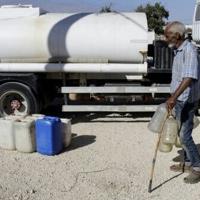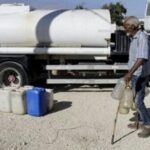In Beddouza, a small fishing village in western Morocco, locals have utilized mobile desalination stations to combat the persistent drought caused by climate change. Since 2023, Morocco has constructed 44 of these compact and transportable units called “monobloc” desalination stations. The potable water produced by these stations is distributed to remote areas in the country, which is currently facing its worst drought in nearly 40 years.
Residents like Karim, a 27-year-old fisherman, express gratitude for the access to desalinated water, with over 45,000 people benefitting from three monobloc desalination stations in Beddouza. The mobile stations have been described by villagers like Hassan Kheir, 74, as a vital resource since the groundwater in the region has dried up. The stations can cover a radius of up to 180 kilometers, providing a solution for the three million people in rural Morocco urgently in need of drinking water.
With nearly depleted dams and dry water tables, Morocco is rushing to address its water crisis by building more desalination stations. Larger desalination plants are also being constructed in cities like Casablanca to increase water production capacity. By 2040, Morocco is expected to face “extremely high” water stress, prompting the country to heavily rely on desalination for water security.
King Mohammed VI has pledged to significantly increase desalinated water production to meet the country’s water needs by 2030. The lack of water also poses a threat to Morocco’s agriculture sector, which accounts for a significant portion of the country’s workforce and exports. Authorities are working against time to expand desalination plants and ensure water access for the growing population.





